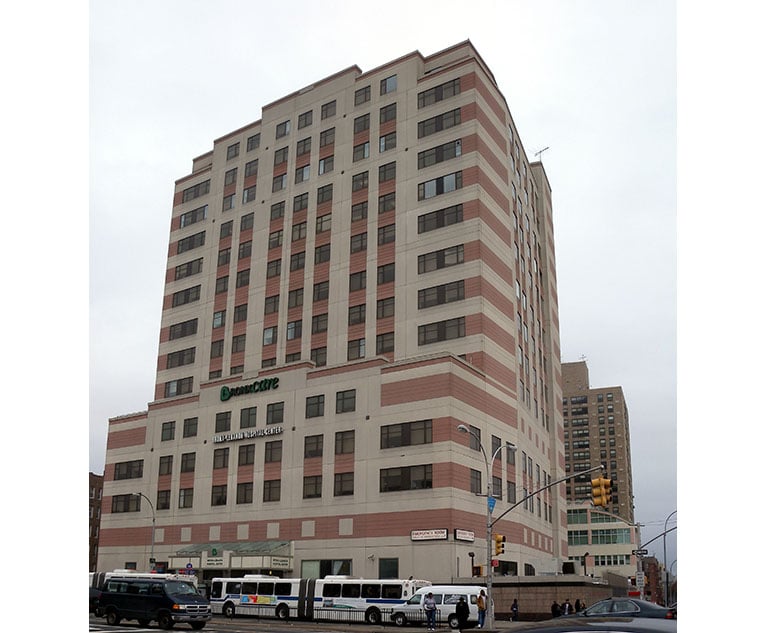“Crash on the levee, Mama,
Water's gonna overflow.”
–Bob Dylan, “Down in theFlood.”
Not that insurance companies needed a reminder, but a Louisianacourt ruling late last month underscored the fact that we have along, long way to go before we sort out the industry's ultimatelosses from Hurricane Katrina. The ruling, issued by Judge StanwoodR. Duval Jr., of the U.S. District Court for Eastern Louisiana,offered thousands of New Orleans residents a ray of hope that theirflood-related losses may in some cases be covered by insurancebecause they resulted from the failure of levees.
|The judge's ruling, in a case that consolidated severalcomplaints for damages resulting from levee breeches, turned on thetime-honored practice of interpreting insurance-policy ambiguitiesin insureds' favor-and the judge gets to decide what's ambiguous.According to news reports, Judge Duval found that the standard ISOflood-insurance exclusion was less than crystal clear-and thereforeunenforceable–in regard to whether it applies to “man-made” flooddisasters, like those that might result from ruptures ofnegligently designed or maintained canals or levees.
|Several insurers had a dog in this fight, including State Farm,Hartford, Allstate and Travelers. Some fared better than others.The judge let State Farm and Hartford off the hook because theirpolicies contained language (an endorsment in Hartford's case) thatwent beyond the standard ISO flood exclusion. The others weren't solucky.
|Judge Duval immediately sent his ruling to the 5th U.S. CircuitCourt of Appeals for a review. Robert Hartwig, chief economist forthe Insurance Information Institute, expressed doubt it wouldstand. “The judge reached the wrong conclusion,” he was quoted assaying in the New York Times. “The policies clearly excludeflood-related damage under any and all circumstances.”
|If Judge Duval does get the appeals court's backing, he willthen decide whether to certify the cases as a class-action lawsuit,according to news reports. Class-action status is to litigationwhat accelerants are to fires. According to the Wall StreetJournal, the losses ultimately could amount to more than $1billion–on top of the $41 billion that Katrina already has costinsurers. The appeals court is not expected to rule until spring atearliest.
|Ironically, the Wall Street Journal published an article lessthan a week earlier outlining Allstate's new strategy to sharplycurb its exposure to coastal property risks and have its agentsstart cross-selling life insurance and annuities to middle-incomebaby boomers instead. No doubt Judge Duval's ruling made thoseannuities look better than ever.
|Back in August, insurers fared better in court when Judge L.T.Senter Jr., of the U.S. District Court for the Southern District ofMississippi, upheld the standard flood insurance exclusion in apolicy issued by Nationwide Insurance Co. Under his ruling,however, insurers are still responsible for damage caused byKatrina's winds, as opposed to storm surge and flooding.Determining how much loss to assign to each peril, based in manycases on whatever evidence can be construed from bare foundations,should keep insurance defense counsel gainfully employed for sometime to come.
|An interesting side issue in the New Orleans cases has beenwhether Judge Duval–or any judge in the Crescent City–can rule onthem impartially. By mid-November some 17 class-action lawsuits andthousands of others had been filed against insurers and thoseresponsible for the levees' upkeep, according to the HoustonChronicle. The paper said that in one of them The Board ofCommissioners of the Orleans Levee District sought to disqualifyany New Orleans federal judges from hearing cases brought againstthem. The matter was appealed all the way to the U.S. SupremeCourt. On the day that the High Court refused to get involved,Judge Duval issued his ruling in the matter at hand.
|Recusal requests apparently have become common in the wake ofKatrina, and different judges have responded in different ways.Some that suffered heavy storm damages themselves have decided theycan't objectively hear Katrina cases. (All the state court judgesin a Jefferson Parish judicial district recused themselves fromsuch cases.) Others who were not greatly affected have concludedthey can.
|According to news reports, Judge Duval had to evacuate his homefor two months following Katrina. His daughter's house was flooded,although she was compensated and agreed not to be part of anyclass-action litigation. The judge also had to relocate hiscourtroom twice.
|“As a matter of extreme serendipity, my family and I had noeconomic loss as a result of the flooding in Orleans and Jeffersonparishes,” Judge Duval wrote in a decision, according to theHouston Chronicle. “Any inconvenience was ephemeral and remote.Obviously, if I cannot hear this case, no judge in this districtcan.”
|Thus it is that the owners of some 250,000 water-damagedproperties in New Orleans, who in the days following Katrinadiscovered they were out of luck if they hadn't bought floodcoverge, may yet find a way to tap insurers' pockets. Once again,the words of Bob Dylan seem oddly relevant:
|“It's gonna be the meanest flood that anybody's seen.
Oh, Mama, ain't you gonna miss your best friend now?
You're gonna have to find yourself
another best friend somehow.”
No doubt some insurers are thinking, “Maybe Mama alreadyhas.”
Want to continue reading?
Become a Free PropertyCasualty360 Digital Reader
Your access to unlimited PropertyCasualty360 content isn’t changing.
Once you are an ALM digital member, you’ll receive:
- All PropertyCasualty360.com news coverage, best practices, and in-depth analysis.
- Educational webcasts, resources from industry leaders, and informative newsletters.
- Other award-winning websites including BenefitsPRO.com and ThinkAdvisor.com.
Already have an account? Sign In
© 2024 ALM Global, LLC, All Rights Reserved. Request academic re-use from www.copyright.com. All other uses, submit a request to [email protected]. For more information visit Asset & Logo Licensing.








